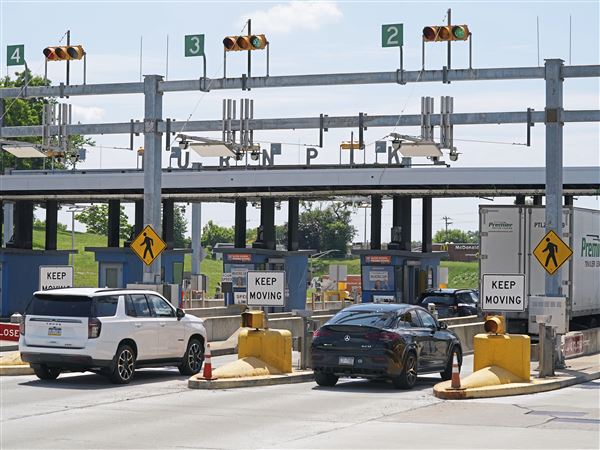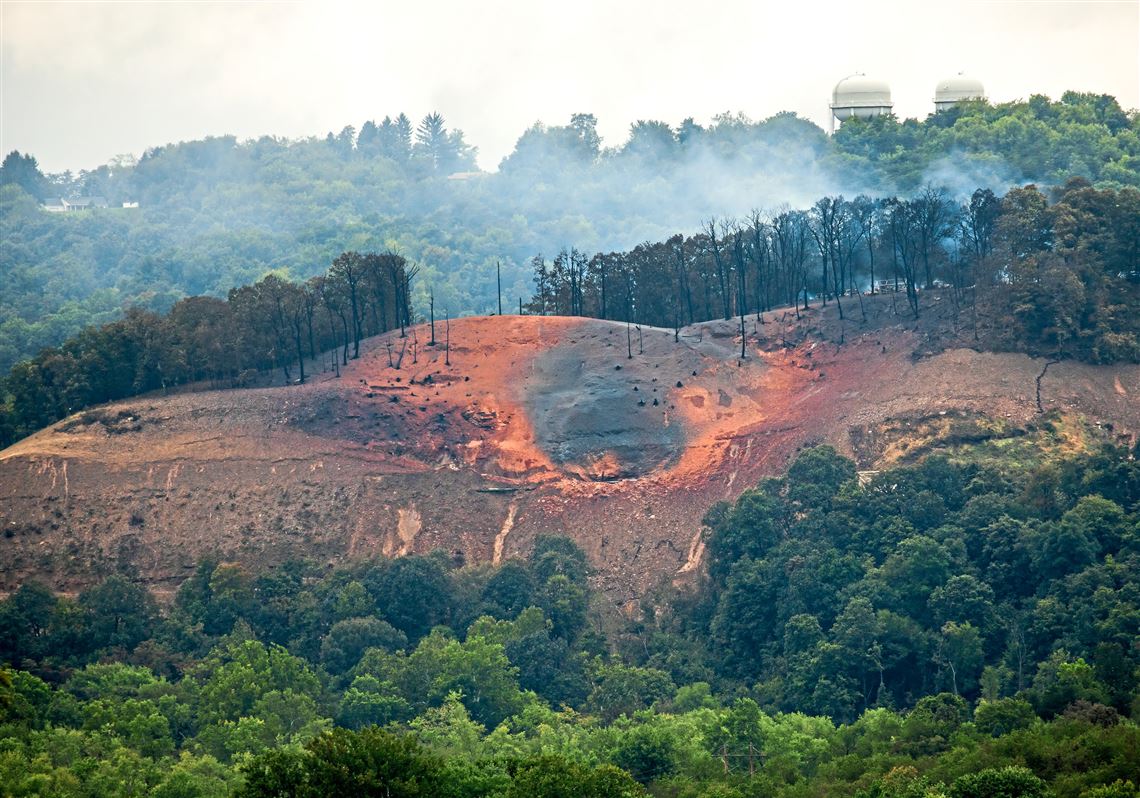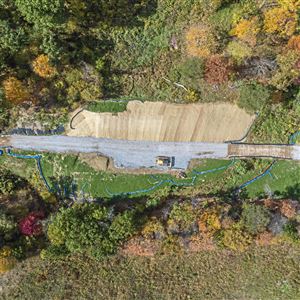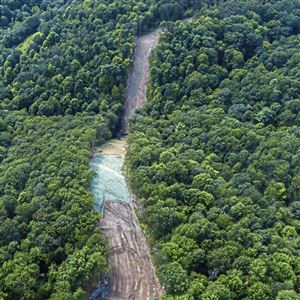Pennsylvania pipeline officials and Energy Transfer LP have agreed to a settlement that would close the Public Utility Commission’s investigation into a 2018 pipeline explosion in Beaver County.
With a proposed $1 million penalty and a slew of safety conditions, the agreement still requires the approval of the commissioners and won’t be brought up for a vote until next year.
It caps more than two years of fact finding after an early morning landslide displaced and severed the recently activated Revolution natural gas pipeline. The resulting fire burned one family’s house, temporarily displaced dozens of other residents, and toppled six transmission towers in a hilly and soaked neighborhood in Center Township.
The PUC’s Bureau of Investigation and Enforcement laid out the case it would have made in court if a settlement wasn’t reached.
The area where the Revolution pipeline exploded was known to be at high risk for slippage, according to Dallas-based Energy Transfer’s own experts, PUC staff wrote.
The agency’s experts said that the pipeline “was not consistently trenched into bedrock at the failure site and that the newly placed fill did not provide enough structural resistance to prevent movement of the pipe during the land movement that occurred.”
Energy Transfer argued, as it has in lawsuits with clients and disputes with environmental regulators, that the pipeline was built appropriately and that it was the “unprecedented” amount of rain in the days leading to the rupture that caused the pipe to slide and break apart. It admitted no fault in the proposed settlement with the PUC.
“This record setting precipitation changed the loading conditions on the pipeline just prior to the failure,” the company wrote.
Federal weather data shows that the region was drenched way above average during that storm, but it was not, as Energy Transfer has said, without precedent.
PUC staff said the company in fact should have anticipated the environmental conditions that doomed the pipeline because the experts it hired to do a geohazard assessment identified the area as being at the highest risk of sliding, and the company’s own daily construction logs tracked problems with unstable soil there.
Regulators also claimed that Energy Transfer broke federal pipeline rules by not warning local and state officials that the line was being put into service and by taking too long to notify various agencies of the rupture on Sept. 10, 2018.
Energy Transfer, in turn, said it would have argued that since it commissioned a report on geohazards and included it in the bid documents to which its pipeline builder, Wilbros, agreed, the company understood that construction would be carried out with that research in mind.
It noted that PUC staff cited no violations when they inspected the construction of the Revolution Pipeline in the fall of 2017 and spring of 2018. The company also disputed that any federal laws were broken, in part by arguing that those rules did not apply to this pipeline or this situation.
Nevertheless, both sides said the settlement would bring the maximum public benefit.
In addition to the $1 million payment, Energy Transfer agreed to costly inline inspections of the Revolution pipeline, frequent monitoring, especially after rain events, and said it would improve how preconstruction research about geology and terrain is incorporated into pipeline design and construction. Such conditions go beyond what would be required of such pipelines by federal regulations, the PUC staff noted.
The agency also stressed that Energy Transfer “fully cooperated in the investigation and settlement process in this matter and that such cooperation demonstrates a commitment consistent with public safety goals and objectives.”
PUC staff promised they would not seek to prevent Energy Transfer for placing the pipeline back in service if the settlement is executed.
But the PUC is not the only agency that’s holding back the pipeline.
Last month, the Pennsylvania Department of Environmental Protection blocked the restart of the pipeline on the grounds that the company hasn’t submitted plans to permanently stabilize steep or unsteady slopes along the route of the Revolution line. Energy Transfer is fighting the order in court.
Anya Litvak: alitvak@post-gazette.com
First Published: December 21, 2020, 11:19 a.m.




















